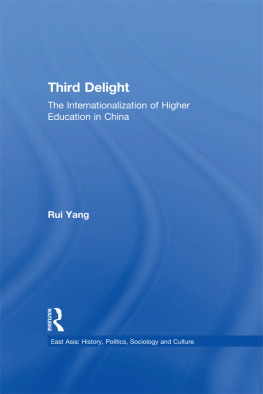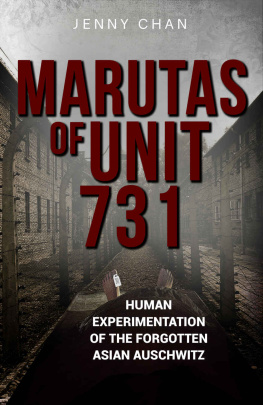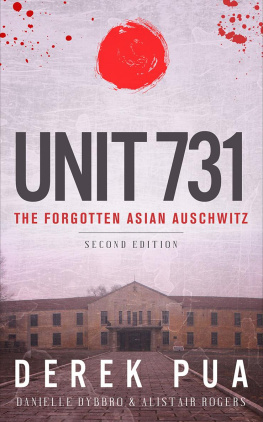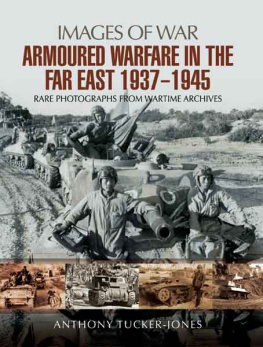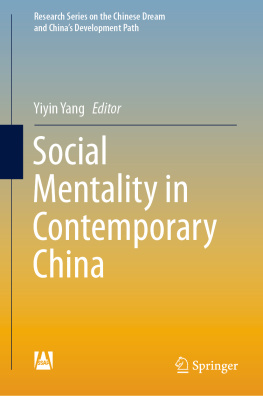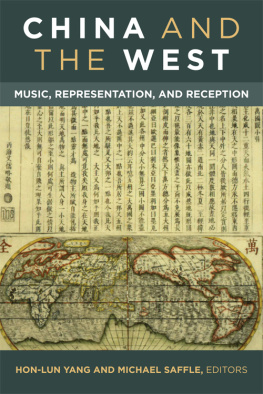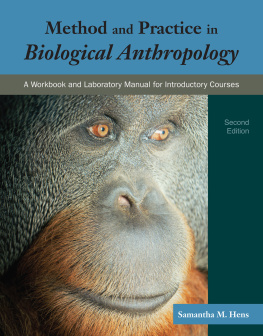
Fonthill Media Limited
Fonthill Media LLC
www.fonthillmedia.com
First published in the United Kingdom and the United States of America 2018
British Library Cataloguing in Publication Data:
A catalogue record for this book is available from the British Library
Copyright Yan-jun Yang and Yue-him Tam 2018
ISBN 978-1-78155-678-8
The right of Yan-jun Yang and Yue-him Tam to be identified as the authors of this work has been asserted by them in accordance with the Copyright, Designs and Patents Act 1988.
All rights reserved. No part of this publication may be reproduced, stored in a retrieval system or transmitted in any form or by any means, electronic, mechanical, photocopying, recording or otherwise, without prior permission in writing from Fonthill Media Limited
Typeset in 10.5pt on 13pt MinionPro
Printed and bound in England
Acknowledgements
The early parts of this book were initiated by Yan-jun Yang, professor in the Harbin Academy of Social Sciences and deputy curator of the Museum of the War Crimes by the Japanese Imperial Army Unit 731.
Yang, a specialist in details of the compound left by Unit 731, had studied the victimisation of live humans by Japanese scientists of the unit. He had been eager to put his research into proper historical context and to introduce his findings to the Western world for some time with little result.
In the summer of 2013, at the suggestion of Dr Don Tow, President of the New Jersey Alliance for Learning and Preserving the History of World War II in Asia, Yang invited Dr Yue-him Tam, Professor of History at Macalester College, St Paul, Minnesota, USA, to co-author a book. A specialist in Japanese Studies, Dr Tam is one of the very few scholars in the West to study and teach the history of Imperial Japans war crimes in Asia during the Second World War and the memory issues in the post-war decades. Coincidentally, Dr Tam is Yangs long-time friend and mentor in the study of Sino-Japanese relations with special references to war crimes by Imperial Japan and issues of post-war remembrance.
Working closely together, Yang and Tam have expanded the historical perspectives of the book. As Dr Tam was responsible for rendering the text into English, he has sought editorial assistance from special readers: Mr Wilson Lee and Miss Yilin Wong, then PhD students in Japanese Studies at the Chinese University of Hong Kong, helped render technical Japanese terms into readable English, while breathing fresh air into the text from vantage points of the younger generation. The authors are also grateful to Ms Karin Winegar, a veteran freelance journalist and independent author based in St Paul, Minnesota, who helped make unprecedented gruesome issues of biochemical warfare easily understandable to Western readers. Ms Winegar also streamlined the narrative in English by clarifying technical and academic jargon.
The co-authors extend their special gratitude to the editors at Fonthill Media for their patience and understanding of our delay in submitting our manuscripts. We also take responsibility for any factual errors in the book. We are particularly moved by their endorsement of our belief that worldwide peace, justice, and prosperity will prevail and endure so long as nations shall do unto others as they would have others do unto them.
CONTENTS

Fig. 1 Early Unit 731.

Fig. 2 Employees Card of Unit 731.

Fig. 3 Labour Certification of Unit 731.

Fig. 4 Shir Ishii.

Fig. 5 Masaji Kitano.

Fig. 6 The 11th Meeting of the Japanese Association of Medicinal Sciences. Shir Ishii.

Fig. 7 The senior officers of Unit 731. Masaji Kitano (front row, in the middle).

Fig. 8 Victims family members, taken at the former site of Unit 731. From left to right : Xiaoguang Wang, Fengqin Li, Yibang Wang, Kewei Zhang (son of victim Huizhong Zhang), Yufen Zhu (daughter of victim Yuntong Zhu), and the son of Yufen Zhu. ( Kept by International Center for Unit 731 Research )

Fig. 9 Okawa Fukumatsu, 2008.

Fig. 10 Victims of Special Transfer: Yaoxuan Wang and Xuenian Wang.

Fig. 11 On 26 November 1995, Yutaka Mio shared his oral narrative on Unit 731 Exhibition Tour in Japan. Renzuizhilu: Qisanyibudui yu sanweifeng de jilu (Trip of Crime Committing: Record of Unit 731 and Yutaka Mio).
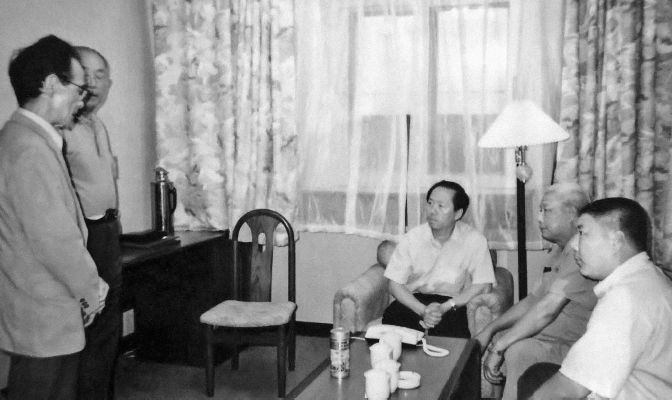
Fig. 12 On 31 July 1995, Yutaka Mio apologised to Yibing Wang and Xiaoguang Wang. From left to right: Yutaka Mio, former director of Fushun War Criminals Management Centre Yuan Jin, Wenjun Shi from Dalian Chronicle Office, Yibing Wang (son of Yaoxuan Wang) and Xiaoguang Wang (grandson of Yaoxuan Wang). (Photo provided by Yibing Wang)
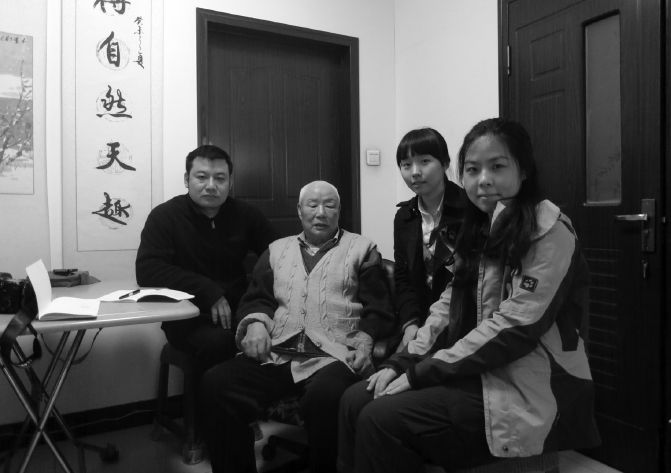
Fig. 13 On 11 April 2015, author Yan-jun Yang (left) interviewed Yibing Wang. From right to left: Rujia Liu and Tongzhu Wang.
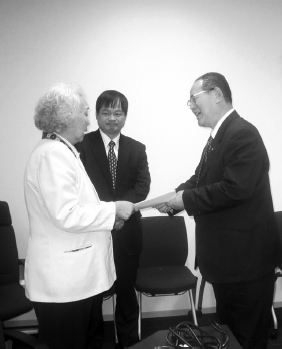
Fig. 14 On 24 November 2010, Fengqin Li handed the application to the Japan Parliamentarians Union and discussed her fathers history. (Photo courtesy of International Center for Unit 731 Research)
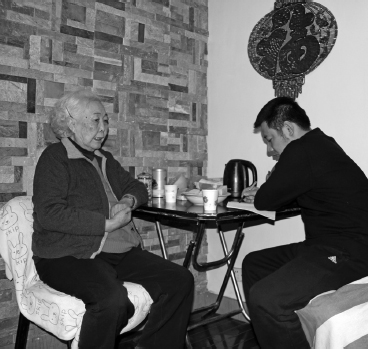
Fig. 15 On 12 April 2015, the author interviewed Fengqin Li. (Photo by Tongzhu Wang)
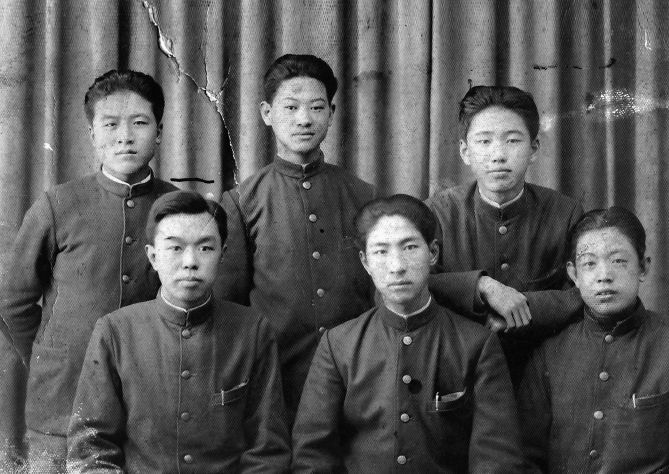
Next page

